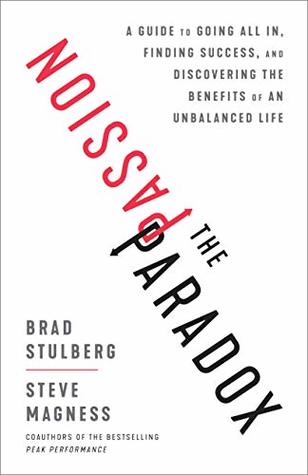More on this book
Community
Kindle Notes & Highlights
She was strangely unaware that she could look and see freshly for herself, as she wrote, without primary regard for what had been said before.
Practically, this means we should set aside the time, space, and energy to give our respective passions our all.
t]o take pleasure in an activity is to engage in that activity while being absorbed in it, where this absorption consists in single-minded and lively attention to whatever it is that seems to make the activity good or worth pursuing.”
Deep-focused engagement is fuel for harmonious passion.
Way too often, we may appear to be here, but we are really there.
how we assign our attention has an enormous influence on what we do from day to day, year to year, and even over the course of a lifetime.
“One of the most important roles for attention is to translate goals
into overt behavior.”
whatever we channel our attention toward receives a declaration of value, a reinforcing signal that our chosen pursuit is important.
the key message here is, what is important doesn’t necessarily get our attention; what gets our attention becomes important.
It’s only by repeatedly sending a clear message that your pursuit is supremely important—a message that is sent via where you direct your attention—that you gain the discipline
and capacity required to resist all the distractions,
When engaging in your passion, be here now.
what gets your attention becomes important. Be intentional about where you direct yours.
quality not as an adjective, but rather as an event.
occurs when an actor and his or her act are so seamlessly interwoven that they are hard to separate—they
a connection born out of the utmost respect, attention, and caring.
In order to experience Quality, you can’t be thinking about the past or the future or what other people may think of you or your work.
Rather, you must be completely involved in whatever it is you are doing.
Fully throwing yourself into a passion—even if it’s the best kind of passion, however harmonious it may be—tends to throw your life out of balance.
Should you even be striving to in the first place?
“You’ve got to be a minimalist to be a maximalist; if you want to be really good, master and thoroughly enjoy one thing,
you’ve got to say no to many others.”
The more passionate we become about any one pursuit, the less of ourselves we have to offer to everything else.
The problem isn’t that you sacrifice a lot for passion, but that it’s all too easy to let the inertia of a passionate experience carry you forward without ever really evaluating what you’re sacrificing—for
“stress + rest = growth.”
if you push too hard without appropriate rest and recovery, you’re bound to stagnate.
If you are into what you’re doing and you’re dying to get better, the natural inclination is to keep pushing.
it’s easy to slip into apathy and, even worse, depression.
the last thing you should do is sacrifice sleep.
during sleep that you retain, consolidate, store, and connect information.
your mind doesn’t grow and make leaps when you are at work, but rather...
This highlight has been truncated due to consecutive passage length restrictions.
If you consider not working a part of the work, you’re more likely to not work.
consider rest an essential part of their jobs. They think about rest not as something passive (i.e., nothing is happening, you’re wasting time) but rather as something active
in this light, rest isn’t separate from the work—rest is an integral part of the work.
self-awareness is about creating the time and space to know yourself, constantly checking in with yourself (since your “self” changes over time), and then living your life accordingly.
one of the best ways to accomplish it is to mentally step outside your “self.” Psychologists call this self-distancing,
Practicing self-awareness allows you to more honestly evaluate and reevaluate the trade-offs inherent to living an unbalanced, passionate life.
it’s about pursuing your passions fully and harmoniously, but with enough self-awareness to regularly evaluate what you’re not pursuing as a result—and make changes if necessary.
strive for the self-awareness that is necessary to evaluate the unique trade-offs that passion requires making in your own life.
In terms of the psychological factors that give rise to intense passion (see chapter 2), Lindley had them all.
she never lost her inner drive or her deep love for the sport. She was focused on the process, possessed an “embrace failure for chronic gains” attitude, and wanted to be the best at getting better—to beat herself—more than anything else.
big part of being able to leave triathlon, Lindley says, “came from accepting who I was as a person.”
she realized that, at this stage of her life, she was sacrificing too much for triathlon.
What’s most important is that it was a deliberate choice, and that Lindley didn’t just go on with her life on passion-driven autopilot.
this deliberate choice required a profound sense of self-awareness.
Self-awareness is perhaps the only countervailing force strong enough to match the ex...
This highlight has been truncated due to consecutive passage length restrictions.
Self-awareness simply empowers you to evaluate and reevaluate how you pursue your passions. It gives you the power to choose if and when to pull back from a passion—or, alternatively, if and when to push forward, perhaps with even more fire and drive.
When she’s in these situations, Rusch creates space between her thoughts and feelings by pretending she’s giving advice to a friend.


